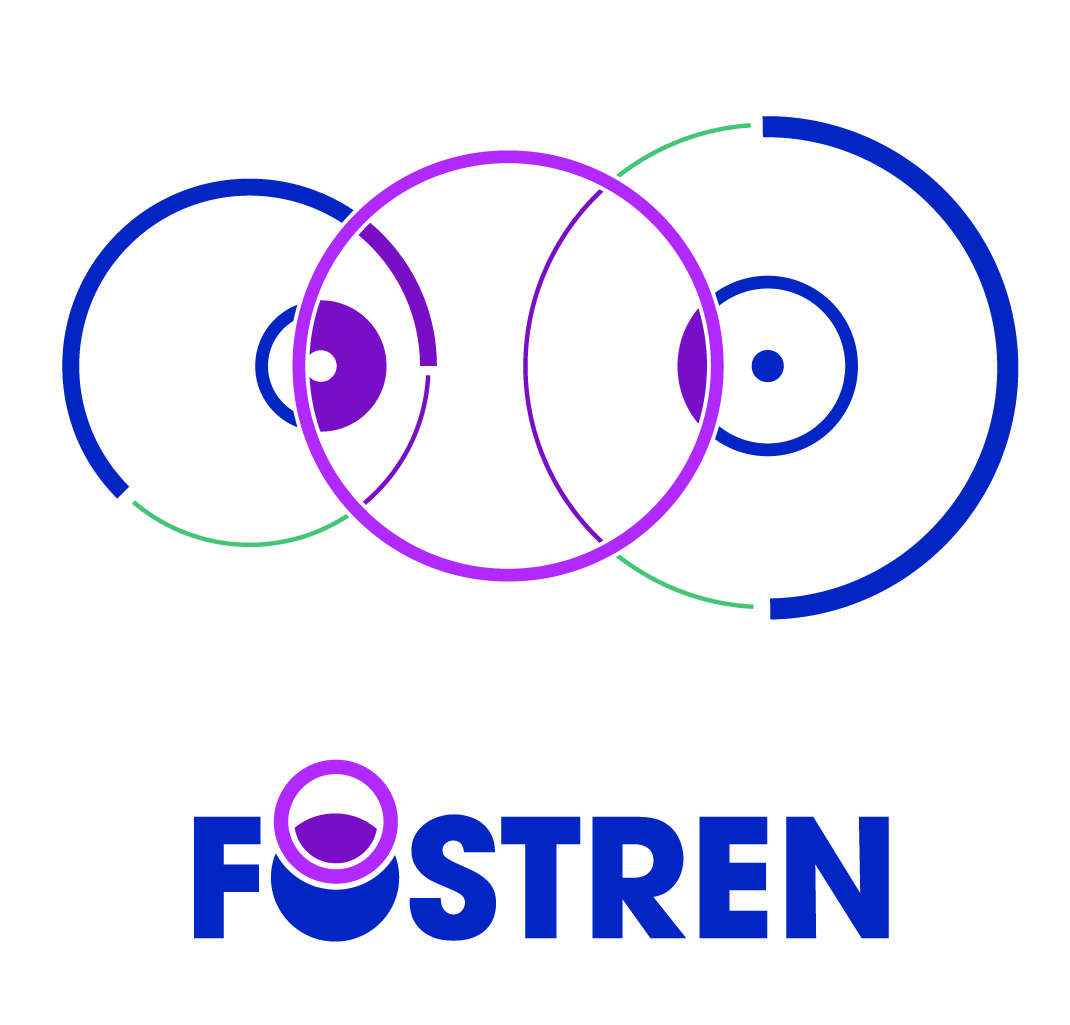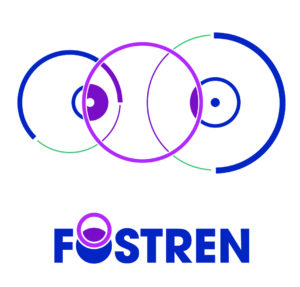Why are you in the network? What would you like to achieve with it?
We are a group of psychiatric professionals organized in a research Group and loosely associated to
FOSTREN. Our motivation to engage against coercion in psychiatry is diverse and I want to give
everyone a voice:
Florian sees a „shift towards human rights-based psychiatry“. He wants to „utilize the
multiprofessional collective intelligence of FOSTREN to chart pathways toward leaving violence in
psychiatry behind us“.
For Julia it is: „As a psychiatrist, I can only be effective if I make an effort to create a sustainable
relationship. For me, using coercive measures is the opposite of this. That’s why I see it as my
responsibility to always strive to offer alternatives, because coercion must always remain the last
resort.“
Jakob states: „Coercion contradicts our fundamental rights, it rarely leads to cooperation or
treatment commitment, traumatization associated with coercion leads to additional burden of
disease. A most dramatic experiences for me was the feeling of helplessness, of being at the mercy
of others, of being powerless being restrained myself as part of the de-escalation training. I dont
want anyone to experience likewise.
Klara says: “I am involved in research as well as in the evaluation of acute care concepts aiming to
reduce coercive measures because I am aware of the hazards of the use of coercion to patients and
staff. A needs-adapted and safe treatment in mental health crises is of high priority, coercive
measures go against a therapeutic and empowering attitude.
Joachim’s statement: „In the constant struggle for a balance between autonomy and care,
psychiatry has traditionally emphasized the latter and accepted that this involves coercion. And not
for entirely bad reasons since not caring means neglect. Hovever, in shifting the focus to
autonomy the abyssmal practice was so often to simply move coercion to a place where we no
longer see it (prisons, high security units, police). I want coercion to be abolished in psychiatry,
but I want it to be abolished everywhere and not just to deny its existence. I also call for realistic
concepts for incapacitated patients, who must not be neglected: I have the right to be treated
against my will if I loose my mind due to an illness (Asmus Finzen 2013)“.
What is your country’s stand on coercion reduction?
The background and prerequisite for the reduction of coercion is the structure and ressources of the
national psychiatric service providers. While there is only one law regulating nonconsensual
psychiatric treatment in Austria, there are 9 federal states and consequently 9 independent providers
applying and interpreting this law. At the beginning of the 20th century, Psychiatry in Austria
consisted of the then modern big psychiatric hospitals on the outskirts of the major population
agglomerations (Asylums). From then on, psychiatry developed at a local level at different speeds
and in different ways to become what we have today.
In recent years, most federal states started to develop and implement psychiatric development plans
in order to meet the expected challenges and needs in future psychiatric care. While in some places
psychiatry has evolved within more traditional Asylum structures, in others the development of
integrating psychiatric departments into general hospitals has been completed. But for all service
providers, time has not stood still, and similar needs have ultimately led to similar solutions.
Open doors policy for example was installed in Vienna in the early 80ies when closed doors
prevailed in the rest of the country. Today nearly every psychiatric hospital is open doors with the
option to close parts of a ward or even just a room and Vienna, formerly strictly open doors, has a
closed ward again. Flexible assertive community treatment (FACT) has been installed in some
regions (e.g. Salzburg) under great public attention. Deescalation training is highly popular and is
implemented almost comprehensively.
The legal basis for involuntary treatment and coercion in Psychiatry in Austria is the
„Unterbringungsgesetz“ (Law on Involuntary Psychiatric Hospitalization) which was recently
reformed. This reformed law has been developed in a process that involved users, caregivers and
relatives in an exemplary manner. The new law deals more explicitly with the notification of
coercive measures and with legal procedures regulating their application. It comes with high
expectations that are still waiting to be fullfilled. Above all, issues of capacity still appear to be
undervalued. Another issue is psychiatrically justified coercion in non-psychiatric settings, which is,
according to certain experts, considered to be inadequately addressed in the
„Heimaufenthaltsgesetz“ (Law for Stay in Nursing Homes).
Another important legal step was the modernization of the „Erwachsenenschutzgesetz“ (Adult
Protection Law) in 2018. The new law focuses on autonomy, self-determination and decision making guidance,
shifting the focus from disempowerment to assistance in guardianship.
A major gamechanger is the UN Convention on the Rights of Persons with Disabilities (UN
CRPD) which has been ratified in Austria in 2008. The first national action plan on Disability
2012-2020 was developed and monitoring committees were established at national and federal
levels to ensure implementation. Disability organisations and monitoring committees eventually
started including the interest group and finally advocacy groups for people with psychosocial
disabilities were invited to participate in the second national action plan on disability 2022-2030.
Until then Self-help organisations and advocacy groups for people with mental illnesses had already
existed for up to 20 years in several Austrian provinces. In 2017 the Austrian Health Ministry
established a federal committee of experts by lived experience, who represent these advocacy
groups and organisations, as a measure to support the advocacy movement in Austria. The
independent national umbrella organisation “Dachverband IDEE Austria” was founded in 2019.
There is a mental health advocacy movement in Austria among relatives and carers which began in
1978, when a group of relatives supported by psychiatrist Heinz Katschnig, founded the first
relatives’ association, “Hilfe für Angehörige psychisch Erkrankter” (HPE), in Vienna. Their
primary concern at the time was to get more information and not have to cope with this challenging
situation all alone. HPE is now active with associations and support programmes for relatives in all
federal states and is a member of European Federation of Associations of Families of People with
Mental Illness (EUFAMI).
Another important instrument for reducing coercion is the Austrian Ombudsman Board (AOB)
together with its expert commissions, constituting the National Preventive Mechanism (NPM). Its
task is to monitor public and private institutions and facilities where the freedom of persons is
or can be restricted. The NPM was entrusted with the statutory mandate to perform this
monitoring work in 2012. Six regional commissions and a Federal Commission visit psychiatric
institutions and facilities, retirement and nursing homes, crisis centres and shared accommodation
for children and adolescents, police detention centres, police stations and correctional institutions.
The visits are usually unannounced and occasionally encounter cases of maladministration that have
to be rectified. Regular visits and the recommendation of preventive measures serve to prevent
future cases of maladministration. The Ombudsman Board annually submits a report to the
members of the National and the Federal Council and to the UN Subcommittee on Prevention of
Torture (SPT) about the observations it made.
The Austrian Public Health Institute Gesundheit Oesterreich GmbH (GÖG) has been collecting
data on involuntary placement for the Federal Ministry of Social Affairs, Health, Care and
Consumer Protection (BMSGPK) since 2005. The Results are published in a biennial report. A
primary goal of the project is to improve the transparency and comparability of data in an extremely
sensitive area of care, thereby contributing to the promotion of patient-related quality of care. It also
aims to better understand the numerous factors that influence involuntary placement. As part of the
project, stakeholders are brought together for annual expert talks to discuss data and other topical
issues.
What kind of research is happening in your country on this topic?
Scientific endeavour on the topic is scarce in Austria. There is no section of acute psychiatry in the
Austrian psychiatric society, no chair for forensic psychiatry. There are, however, workgroups at
least partially dedicated to the topic with publicatory activity (see below). One of those is ICOPPA
(Initiative for Coercion Prevention in Psychiatry in Austria). We are recently conducting a study
(SCOPPA) investigating the awareness and degree of application of the Guidelines of the German
psychiatric society on the prevention of coercion in clinical psychiatry (S3 guidelines).
Czernin K, Bründlmayer A, Baumgartner J S, Plener P L. (2023). Space for youth mental health coercive measure use before and after architectural innovation at a department of child and
adolescent psychiatry. Child and adolescent mental health, 10.1111/camh.12690.
Advance online publication. https://doi.org/10.1111/camh.12690
Czernin K, Bründlmayer A, Oster A, Baumgartner J S, Plener P L. (2024). Children and adolescents
at risk for seclusion and restraint in inpatient psychiatric treatment: a case control study. (under
review)
Fellinger M, Waldhör T, Vyssoki B, Amering M, Leutgeb L, Gschaider A, Rappert B, König D,
Fugger G, Knasmüller P, Gmeiner A. (2023). A country report: Impact of COVID-19 lockdowns on
involuntary psychiatric treatment in Austria. BJPsych Open, 10, Article e9.
https://doi.org/10.1192/bjo.2023.610
Fugger G, Gleiss A, Baldinger P, Strnad A, Kasper S, Frey R. (2016) Psychiatric patients’ perception
of physical restraint. Acta Psychiatr Scand. Mar;133(3):221-31. doi: 10.1111/acps.12501. Epub
2015 Oct 16. PMID: 26472265.
Joachim Scharfetter
For the FOSTREN members and associates:
Klara Czernin
Julia Czerny
Jakob Emprechtinger
Matthäus Fellinger
Laura Fragner
Lisa Leutgeb
Dunja Mairhofer
Lisbeth Hanna Reiter
Florian Wostry
Special thanks to
Monika Nowotny and Joy Ladurner from GÖG

